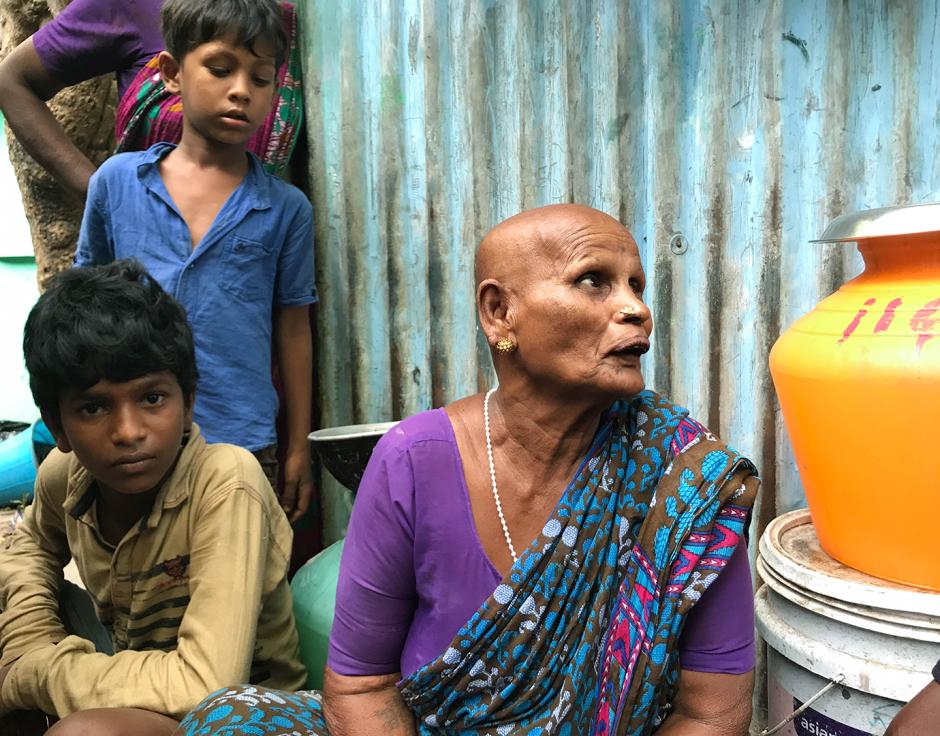The Oppari Crying Singers of South India
February 2024

Sound recordist Yasuhiro Morinaga shares his recordings from a trip to Chennai exploring the songs of professional mourners
| “Oppari Singer 1” | 0:01:52 |
| “Oppari Singer 2,1” | 0:02:55 |
| “Oppari Singer 2, 2” | 0:02:01 |
The crying song is an admixture of eulogy and lament by women who are hired to weep and sing sorrowfully to the dead, synergising the grief of relatives and worshippers during a funeral. In fact, I had read in some articles that the auditory culture of crying songs still existed on the remote island of Amami Oshima in Japan. I imagine that the crying songs may be found in other places in Japan, Korea, Taiwan, the Philippines and Indonesia by following the Kuroshio Current surrounding Amami Oshima, but I have never gone to find out or record them.
In July 2018, I was invited by the Japan Foundation to create music for a contemporary dance piece in India. The choreographer Mandeep Raikhy told me that Chennai has a crying song tradition called Oppari, and that he wanted to incorporate it into the piece. So I went there with almost no preparation. I flew from Delhi to Chennai for a two day trip with a strict schedule, and asked a friend of Mandeep’s who lived in the city to meet with me and explain the cultural context of Oppari. However, when I asked him something, he shook his head, and the conversation did not go deeper. Later, I learned that shaking one’s head in India can mean nodding one's head in my culture, and this initial miscommunication resulted in some awkwardness. Regardless, Mandeep's friend and I took an auto-rickshaw to the vicinity of the slums of Chennai. From there, we spent a few hours on foot, asking people around us if they knew anyone who could sing Oppari. I carried a boom microphone in one hand and a duffel bag in the other for the trip back to Delhi later that night.
After much walking and asking around, we finally found two professional singers in the art of weeping, even if they didn’t readily sing crying songs on the street. They brought us to a nearby Christian cemetery, where they took turns singing Oppari songs of mourning amid the distant sounds of Muslim azan, crows and car noises. As soon as the recording session was over, the singers held their hands out to me, asking for payment. I paid them amounts Mandeep had suggested to me, added some snacks I had brought, and left the cemetery.
I must confess I am not very good at this guerrilla style of field recording. During these recordings, we did not ask the names of the singers, why they started singing Oppari, or why it is important for them to cry through their songs. By doing so, I would have been able to learn their unique perspectives, reasonings, and backgrounds... the actual situation, which is different from the books. They might have been curious to know why a Japanese person like me is interested in Oppari. I was saddened that the nature of our trip meant I ignored these things, as I think of the act of field recording as not only capturing sounds and gathering quantitative research, but also establishing communication with people.
In more recent years, an increasing number of people have been travelling abroad with automatic voice translators. By accessing the internet with a smartphone and using automatic translation, communication can be achieved without difficulty. But is this true communication? Is that what convenience is all about? If so, through the act and process of field recording, I would rather dare choose and believe in inconvenience and difficulty! Because for me, field recording is a way to establish better communication with other people, but through our auditory culture.
Read Clive Bell’s interview with Yasuhiro Morinaga in The Wire 481. Wire subscribers can also read the article online via the digital magazine library.
Leave a comment